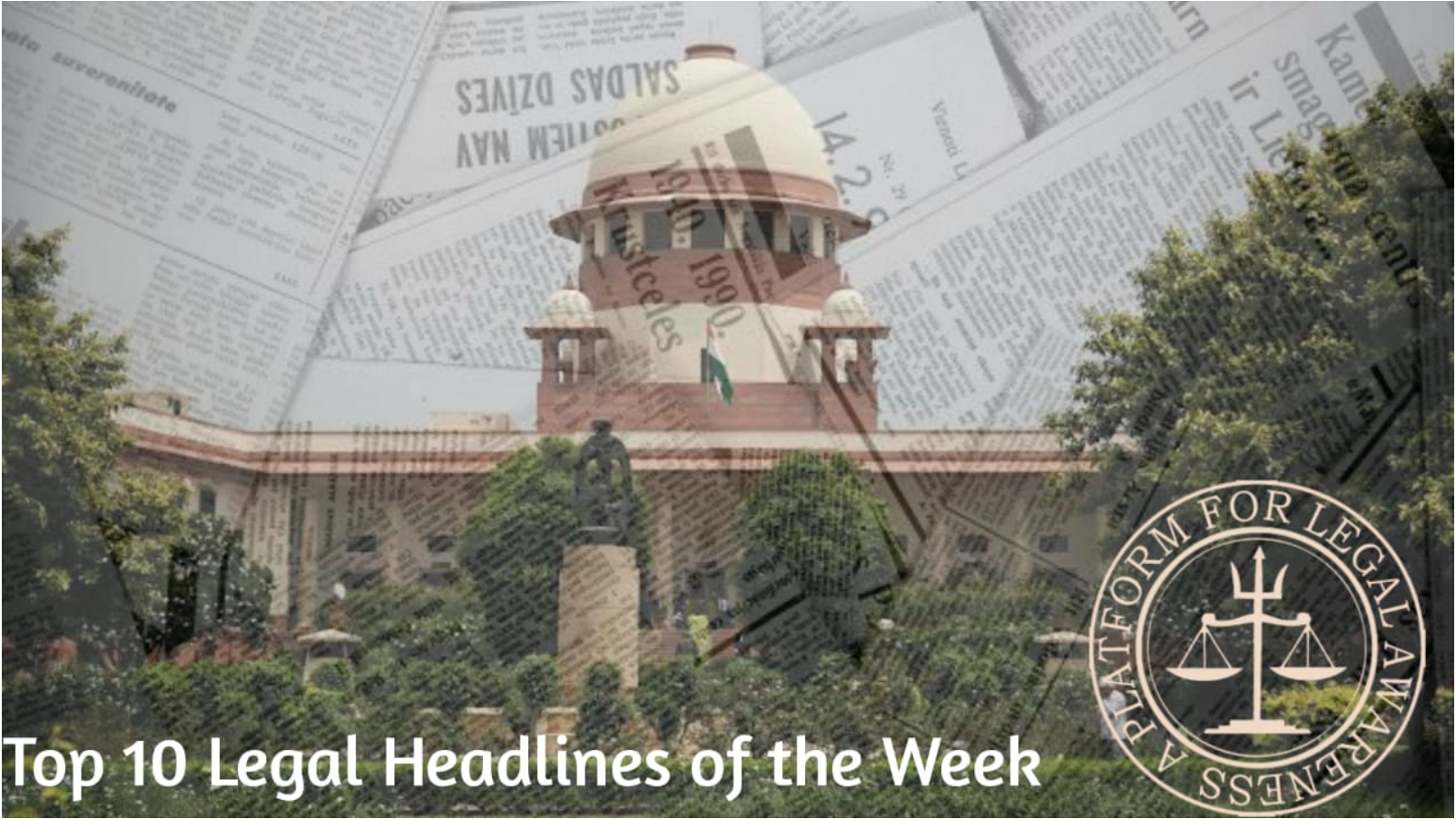1. Supreme Court: Illegal Religious Conversion Not as Serious as Murder, Rape, or Dacoity
The Supreme Court observed that the offence of illegal religious conversion does not hold the same gravity as crimes like murder, dacoity, or rape. The remark was made while granting bail to a maulvi accused of converting a mentally challenged boy to Islam. The Court criticised both the trial court and the Allahabad High Court for denying bail, emphasising that the severity of punishment should be proportionate to the offence.
2. Supreme Court: Police Cannot Use WhatsApp to Serve Notice to Accused
The Supreme Court ruled that police cannot use WhatsApp or other electronic modes to substitute for serving notices under Section 41A of the CrPC or Section 35 of the BNSS. These provisions require formal notices to be issued to accused persons whose immediate arrest is not necessary. The Court emphasised that due process must be followed to ensure proper legal communication and prevent procedural lapses.
3. Supreme Court Acquits Man on Death Row Since 2015 in Techie’s Rape and Murder Case
The Supreme Court on Tuesday acquitted a man who had been on death row since 2015 for the 2014 rape and murder of 23-year-old software engineer Esther Anuhya. The victim, employed at TCS in Goregaon, Mumbai, hailed from Machilipatnam, Andhra Pradesh. The Court's ruling overturns previous convictions, raising questions about the prosecution's evidence and the legal process that led to the death sentence.
4. "Justice Cannot Thrive When Falsehood is Practiced": CJI Sanjiv Khanna on Supreme Court Diamond Jubilee
Chief Justice of India (CJI) Sanjiv Khanna emphasised that justice cannot flourish in an environment where falsehood prevails. Speaking at the Supreme Court's 75th anniversary celebration, he highlighted the judiciary’s challenges in maintaining integrity and fairness. Addressing a full court assembly, he stressed the importance of truth in the legal system, reaffirming the Court’s commitment to upholding constitutional values and the rule of law.
5. Supreme Court Calls for Law to Protect Domestic Workers' Rights
The Supreme Court urged the Central government to enact a comprehensive law safeguarding the rights of domestic workers. The Court observed this while quashing a case against a man accused of restricting a housemaid from leaving his residence. Recognising the vulnerability of domestic workers, the Court stressed the need for legislative measures to ensure fair wages, protection from exploitation, and access to legal remedies. It highlighted the absence of a dedicated legal framework addressing their rights and working conditions.
6. Supreme Court Declares Domicile-Based Reservation in PG Medical Courses Unconstitutional
The Supreme Court ruled that domicile-based reservation for admissions to postgraduate medical courses within the State Quota violates Article 14 of the Constitution, which guarantees the right to equality. The ruling came in response to a reference made by a two-judge Bench. The Court emphasised that merit should be the primary criterion for PG medical admissions and that such reservations create an unfair advantage for specific candidates, undermining equal opportunity in higher medical education.
7. Husband Presumed Legal Father of Child Despite Wife’s Adultery: Supreme Court
The Supreme Court ruled that when a marriage is legally subsisting, and the husband and wife have access to each other, the husband is presumed to be the legitimate father of the child, even if the wife claims the child was born from an adulterous relationship. The Court further held that when there is sufficient evidence to presume legitimacy, courts cannot order a DNA test to determine paternity, as it could violate the child’s rights and dignity.
8. Supreme Court Allows Appointment of Retired Judges to High Courts on Ad-Hoc Basis
The Supreme Court has permitted High Courts to recommend the appointment of retired judges on an ad-hoc basis to address case pendency and clear backlogs of criminal appeals. The Court also indicated that it would relax certain conditions in its April 2021 judgment, which outlined the framework for appointing ad-hoc judges under Article 224A of the Constitution. This move aims to enhance judicial efficiency and expedite long-pending cases.
9. Supreme Court Slams Centre for Frivolous Appeals Against Soldiers in Disability Pension Cases
The Supreme Court criticised the Central government for filing frivolous appeals against armed forces personnel seeking disability pensions. A Bench comprising Justices Abhay S Oka and Ujjal Bhuyan urged the government to formulate a policy to prevent unnecessary litigation in such cases. The Court emphasised the need to respect the rights of soldiers and avoid legal battles that delay rightful benefits.
10. Indira Jaising Criticizes Denial of Access to Supreme Court Judges' Library for Lawyers
Senior Advocate Indira Jaising expressed frustration with the Supreme Court's refusal to grant lawyers access to the Judges' Library. She revealed that her appeals had been disregarded despite writing multiple requests to various Chief Justices over the years. Jaising called for reconsideration, emphasising the need for lawyers to have access to valuable legal resources in the library.

